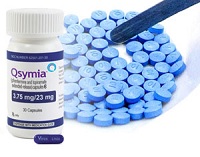 With a trio of new obesity meds on the scene, some industry watchers expected the market to see some serious expansion. But development has been slow--much slower than Qsymia maker Vivus ($VVUS) expected--and halving its rep tally is just one step the drugmaker is taking to help ease the pain.
With a trio of new obesity meds on the scene, some industry watchers expected the market to see some serious expansion. But development has been slow--much slower than Qsymia maker Vivus ($VVUS) expected--and halving its rep tally is just one step the drugmaker is taking to help ease the pain.
The company will bid farewell to 50 reps for the second straight quarter, reducing its corps to just 50 in attempts to cut down costs. It also recently jump-started a copromotion pilot program with Kadmon that it hopes will introduce its flailing med--which brought in just $14 million last quarter--to new potential prescribers, specifically liver disease specialists, CEO Seth Fischer told investors on a Thursday conference call.
Vivus has some ongoing efforts, too, including a separate pilot that helps targeted healthcare providers offer a 3.5-month-long free Qsymia trial program to patients who may not otherwise have the chance to try it. And it's beefed up its digital presence to reach "information-seeking consumers"--a move that's so far "making an impact," Fischer said.
Despite Vivus' efforts to date, the market for Qsymia and its rivals--Belviq from Arena ($ARNA) and Contrave from Orexigen ($OREX)--has developed "at substantially lower rates than expected," Fischer told shareholders, held in check by factors including docs' reluctance to prescribe, public and private payer resistance and a lack of widespread patient awareness. Generic phentermine--which is indicated only for short-term use--still comprises more than 80% of total prescriptions by volume in the anti-obesity category, he said, despite the trio of newcomers.
And until things turn around, Vivus is holding off on shelling out. Coverage for the drug reached 40% in Q2, and Qsymia prescription volume grew about 10% compared with the year-ago period to "remain disappointing," RBC Capital Markets analyst Simos Simeonidis wrote in a recent note to clients.
"Going forward, we will continue to monitor market conditions for any positive developments with physicians, payers and patients that may indicate an increased investment is warranted," Fischer said on the call.
The question for the California drugmaker now is how much it can help improve sales while it's sporting such a tiny rep roster--especially compared with its competitors. Arena boasts a marketing pact with Eisai and Takeda is helping Orexigen promote Contrave; both of which have devoted hundreds of reps to obesity therapies.
Vivus, on the other hand, has no large pharma partner to spread the word on Qsymia--a fact that spurred a 2013 proxy war, resulting in the ouster of the company's then-CEO and more than half its board. And the way Simeonidis sees it, the drug won't get to where it needs to be without one.
"Promoting a drug with 50-100 sales reps in an arena where the battle is being fought with more than 1,800 reps has clearly not worked out well for Vivus," he wrote.
- read Vivus' release
- see the call transcript
Special Reports: Limited attention span? Focus on these market shake-ups in 2015 | 10 top drug launch disasters